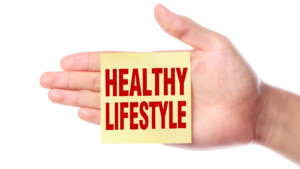
Healthy Diet and Lifestyle Change – Vol. 18
Healthy Diet and Lifestyle Change: How The Two Should Complement Each Other…
I plan to schedule my monthly topics based on feedback from subscribers, the readers of my newsletter, and past and present clients. Back by popular demand is a topic that is truly near and dear to my heart… Hydration. Fountain Hills, Arizona is located in the desert southwest. As the geographic location implies, it usually is hot and dry here which is the perfect setting for extreme and rapid dehydration if one is not careful!
I’ve seen firsthand the results of what dehydration can do to a body, and believe me, it’s not pretty! Drinking water is essential to stay alive year-round wherever you live. But how much water do we really need? You’re probably thinking right now: “I don’t live in the desert. I don’t need to worry about dehydration”. If you subscribe to that thought process, you could be risking serious health implications!
Managing proper hydration can be simple, as long as you establish your own set of guidelines, and follow them! The old recommendation (and I mean old) of 8 cups of water a day was traced back to a 1921 paper in which the author measured his own urine and sweat produced over the course of a day, and determined that we lose 3% of our body weight in water a day or about 8 cups.
Hardly a scientific study by today’s standards considering the average 20-year male stood 5′-9″ tall and weighed 170 pounds in 1910. The very same 20-year-old man today weighs 196 pounds. With that being said, if that man subscribes to the 8 cups of water a day theory, then he is not drinking enough water and is probably severely dehydrated!

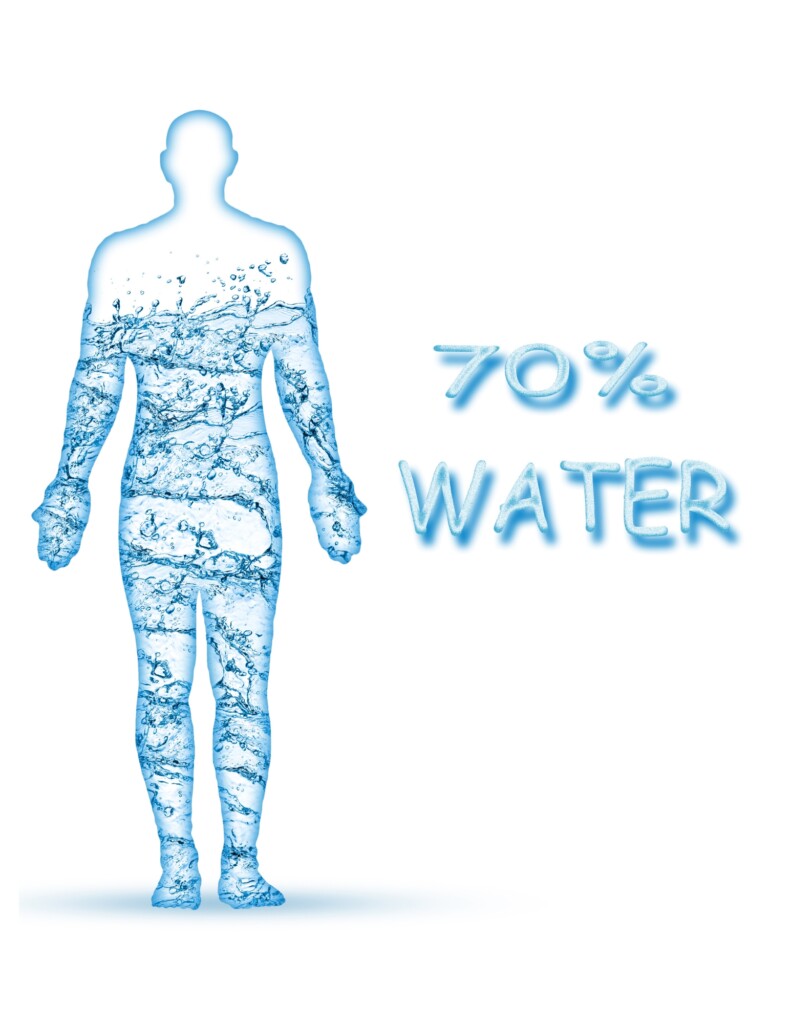
The percentage of water varies according to your age, gender, level of fitness and percentage of body fat. As a rule, the generally agreed upon percentage of water in the human body is around 70%.
As long as you maintain your hydration, and barring any unforeseen circumstances or illnesses, your body will function properly. If you begin to neglect the level of hydration your body requires, then you risk malfunctioning organs or even organ failure. That’s a scary thought, right?
There are studies that suggest not drinking enough water may be associated with falls and fractures, heat stroke, heart disease, lung disorders, kidney disease, kidney stones, bladder and colon cancer, urinary tract infections, constipation, dry mouth, cavities, decreased immune function, and cataract formation. If you don’t take anything else away from this article, please remember this: Water is the only liquid that truly hydrates the body without side effect or caveats!
I am frequently asked the question, “How much do other drinks like caffeine and alcohol consumption affect your hydration?” The answers may surprise you!
Suppose you’re one of the 85% of Americans that drink at least one caffeinated beverage every day, or you’re a habitual alcohol drinker. In that case, you may be wondering: How do they affect my hydration?
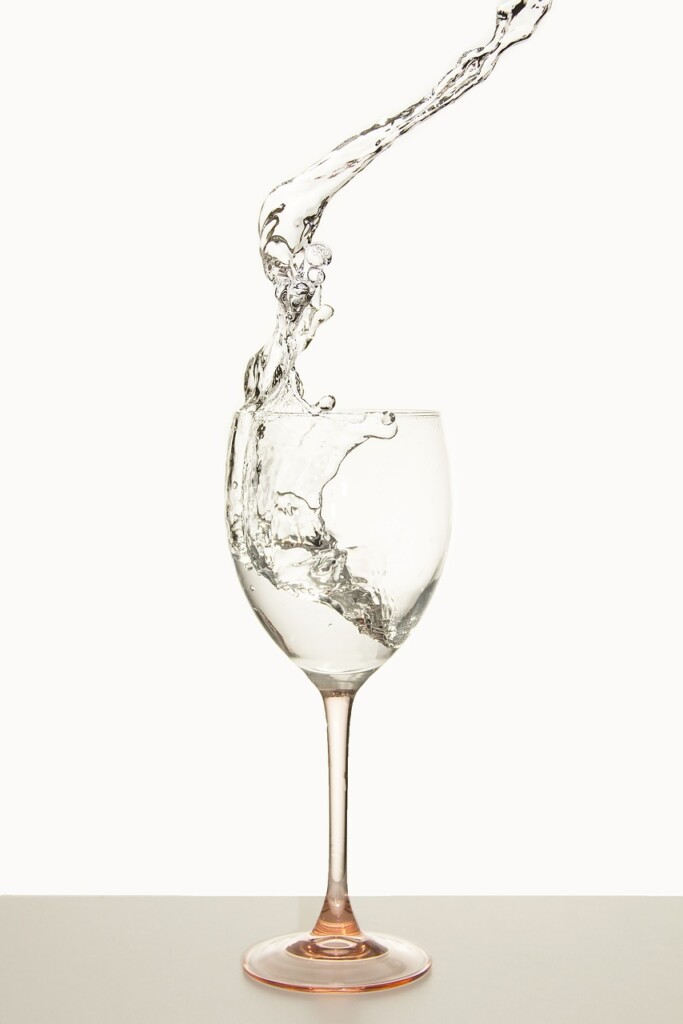
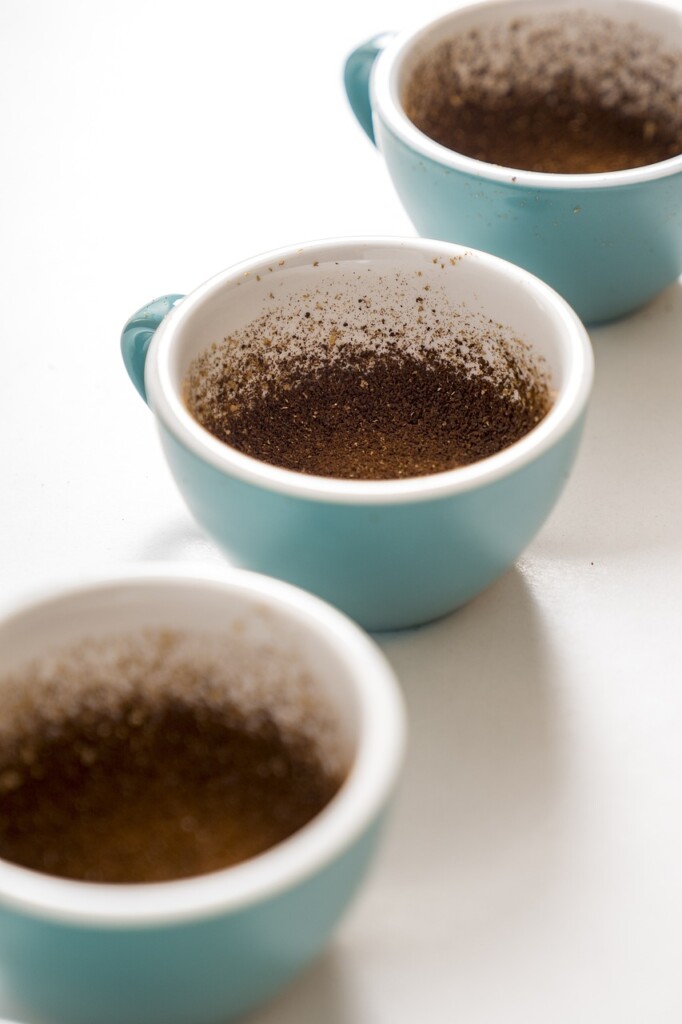
Let’s begin with caffeine. If you’re a coffee lover (coffee is one of the two most popular caffeine sources, with research showing total daily intake worldwide to be 1.6 billion cups), you may have heard at least once in your lifetime that coffee can dehydrate you.
According to The National Institute of Health, this statement comes from a 1928 study determining that caffeine may be dehydrating because it increased urination in people who drank it. But many and more recent studies have since invalidated this conclusion.
The National Institute of Health goes on to state that a review of ten studies shows that caffeine doesn’t cause dehydration any more than water does. Since we all know that water is rehydrating, you’re less likely to experience body water imbalance from taking caffeine.
In fact, according to a 2014 study, coffee contributes to your daily water intake, having “no significant differences” in its hydrating nature with water. And though coffee may increase sodium excretion, this doesn’t automatically increase urination. Another older study comparing the effects of caffeinated and non-caffeinated Carbohydrate-Electrolyte (CE) drinks on body water balance found that caffeine in CE drinks doesn’t impair hydration status either.
Caffeine produces mild diuresis just the way water does. It follows naturally that if caffeinated drinks are your go-to for getting your day started, you can rest knowing they won’t significantly dehydrate you.
Modern science has determined that caffeine is not quite the hydration villain it was once thought to be, but alcohol, on the other hand, is another story altogether.
The science is clear on this one—and is recognized as far back as the 16th century. It has been proven repeatedly in study after study. Alcohol produces a severe diuretic effect and can, in fact, be dehydrating. In fact, Alcohol is said to be the most popular diuretic agent in the modern diet.
The higher your alcohol intake, the more frequent your urge to urinate. Frequent urination means you’re losing more water than you’re replacing, leading to dehydration. It’s no wonder that alcohol hangover symptoms are similar to dehydration symptoms—headache, tiredness, increased thirst, lightheadedness, muscle ache, nausea, dry lips, mouth, and eyes.

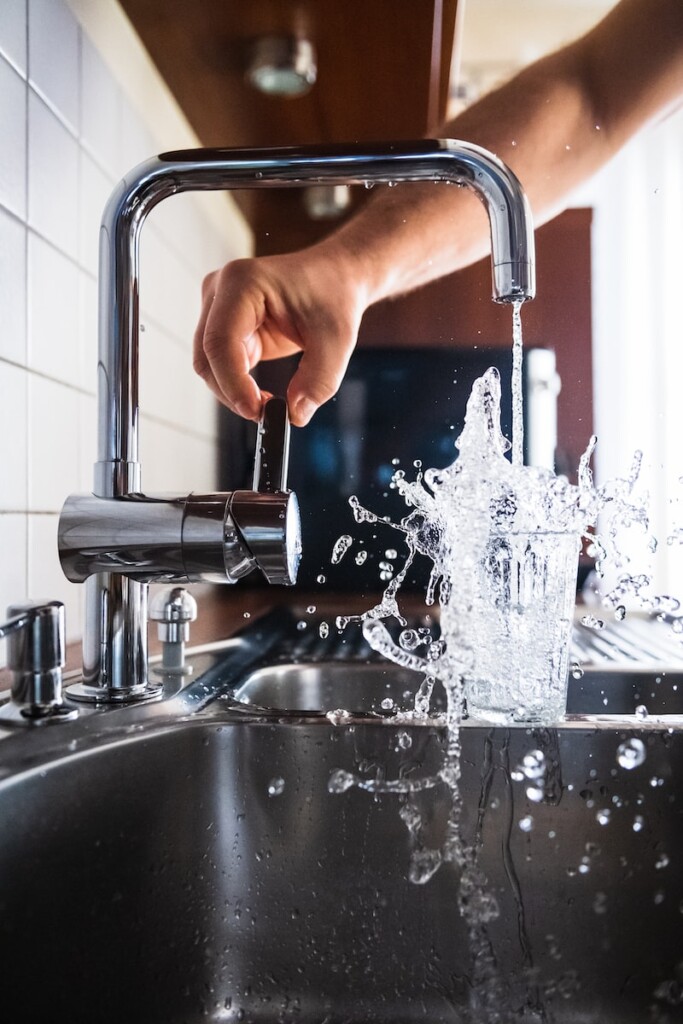
The confusion over the question of how much water to drink a day is that there are other sources of liquid besides water. Enter these other beverages into the mix and confusion results. I haven’t even touched on the topic of the water we consume from the foods we eat (I’ll leave that for another newsletter issue).
While water is generally the best way to hydrate, some people struggle to consume enough because it’s simply not very tasty. Ideally, you should drink plain water; but if you can’t motivate yourself to consume enough plain water, however, it’s okay to choose a different beverage that you enjoy more.
Whatever method you choose…Hydrate To Live!
Are you enrolled in our Wellness Academy?
My Wellness Academy was created with better Health in mind. Your Health! With my guidance, your journey to a healthy lifestyle can be attained through continually learning about the many healthy choices that are available to you that you might not be aware of. If you can follow the tips that I provide in this course, success can be yours by forming new, healthier habits that could soon become a part of your daily life.
